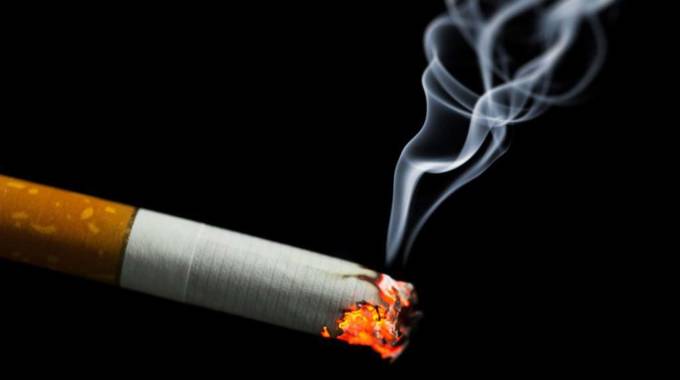
The Sunday Mail

Leroy Dzenga
Senior Reporter
AT a recent Parliamentary Pre-Budget seminar in Victoria Falls there were suggestions that the country could introduce taxes on alcohol and cigarettes to fund health care.
The taxes, euphemistically known as sin tax, are an excise levy placed on certain goods at time of purchase.
This is usually done on goods which are deemed to be harmful to health, a category alcohol and cigarettes fit in perfectly.
With the wide consumption of alcohol and cigarettes, could this be the answer to the resource gaps present in our public health financing which have seen talent flight with doctors and nurses leaving Zimbabwe for greener pastures?
According to the 2020 Delta Annual Report, the country consumed 1 200 000 hectolitres of lagers.
The figure translates to 120 million litres of alcohol, or put simply 160 000 quarts.
Although unit cigarette sales from the major players are not included in their annual reports, cigarette smoking is a habit which is hard to kick, making its demand inelastic. If each cigarette box or quart of beer could see as much as $5 directed to health care, the available financing would assist the sector.
Experts believe the tax, which in some instances may increase, could lead to a healthier country. Mr Itai Rusike, executive director for the Community Working Group on Health said if Zimbabwe is to achieve its goal on Sustainable Development Goal 3 (SDG 3), sin tax could be the way to go.
SDG 3 requires all countries under the United Nations to ensure healthy lives and promote well-being at all ages.
“One of the most innovative ways through which the Government can expand fiscal space for health is to raise additional tax revenue by improving tax collection, including the introduction or increase in ‘Sin Taxes’ (on tobacco, alcohol, sugary drinks and oily fast foods).”
Mr Rusike said lifestyle choices like alcohol and cigarette consumption burden the health sector in the long run and it is only right that funds are set aside to be able to finance treatment in the future.
“Zimbabwe is experiencing rising incidents and burden of Non-Communicable Diseases (NDCs) due to changes in lifestyle such as cigarette smoking, consumption of alcohol, sugary drinks and eating oil fast foods thereby increasing the risk factors that cause NCDs that are now the leading cause of mortality and morbidity,” said Rusike.
He said NCDs are not cheap to treat and the Government should raise anticipatory funds to avert a future disaster.
The concept of sin tax is not exactly new to Zimbabwe. In the current national budget structure there is an excise duty component placed on alcohol and cigarette imports.
Currently, every 1 000 cigarettes imported attract a US$5 rate. There is also 20 percent duty on the factory price for every 1 000 cigarettes imported into Zimbabwe.
However, the tax is yet to extend to purchase prices.
In 2010, the Ministry of Health and Child Care wrote a draft National Alcohol Policy which would have been the legal basis for sin tax. In the draft, there was a recommendation to amend the tax system to ensure that the higher the alcohol proportion in a beverage, the higher the tax.
The document suggested that the application of the tax should be evidence-based.
“Monitor the impact of taxation on sales of informal alcoholic drinks to ensure there is no unintended consequence of driving alcohol consumers to those products,” reads the draft policy.
In September 2017, Cabinet took a decision to revive the National Alcohol Policy, but to date no further updates have been given.
The World Health Organisation (WHO) argues that sin tax is one of the most effective methods to avert alcoholism within the population.
In a recent conversation with The Sunday Mail, World Health Organisation (WHO) Africa Regional Advisor for Mental Health and Substance Abuse Dr Florence Kamayonza said:
“Alcohol taxation and pricing policies are among the most effective and cost-effective alcohol control measures.”
She said the taxes have been proven to reduce harmful use of alcohol and provide governments with revenue to offset the economic costs of harmful use of alcohol.
If Zimbabwe adopts sin tax, it would have followed the path walked by many countries including its neighbour South Africa.
For every box of cigarette bought in the neighbouring country, 40 percent goes to their government’s coffers.
WHO recommends that sin tax should be 70 percent of the total cost. In February 2021, then South Africa Minister of Finance Tito Mboweni increased purchase excise duty on alcohol and cigarettes by 8 percent.
For every beer bought in South Africa, R14 goes to their Government.
A 750 millilitre bottle of spirits attracts a sin tax of about R5.
Mr Tungamirai Zimondi of the Southern African Alcohol Policy Alliance (SAAPA), said Zimbabwe can also learn from how Thailand structured its sin tax.
“A dedicated, independent health promotion fund established through the levy, similar to the Thai Health Promotion Fund. The funds could be used to finance action to reduce HIV, TB, NCDs, road fatalities, violence against women, mental health issues as well as other health and social outcomes severely affected by the products, practices of the tobacco and alcohol industry,” he said.
The manner in which sin tax is applied differs from one country to the other.
In Finland, they have banned happy hours in pubs, where beers are sold at a discount for a specified time. All these measures are an attempt to control the consumption of alcohol and cigarettes, which if left unattended can degenerate into a public health emergency. Zimbabwe is still trying to find its way around substance (both legal and illegal) abuse. Could sin tax be a good starting point?



